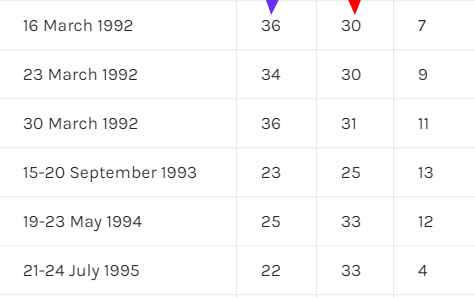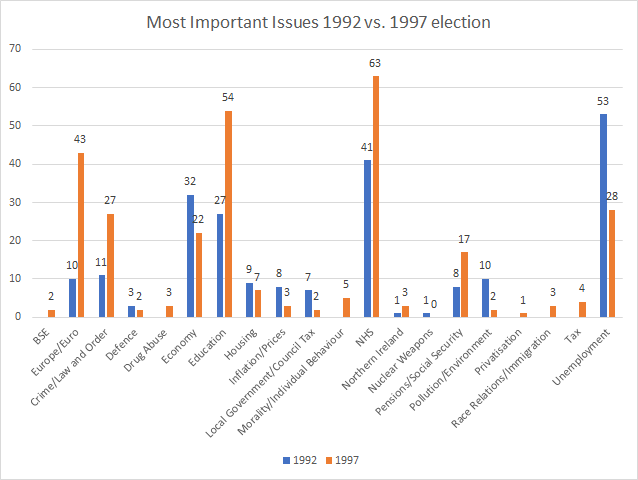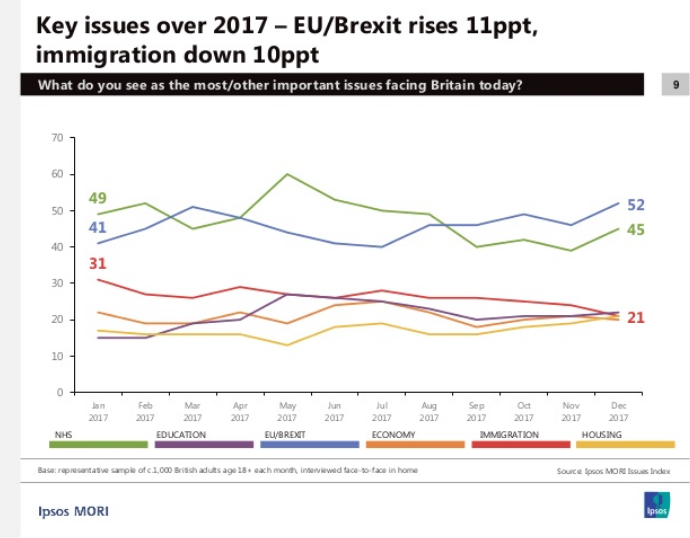This is a typically excellent piece from Stephen, which gets at the reality of dealing with Labour's economic credibility problem, discussion of which I think is negatively affected by a misreading of how New Labour dealt with this issue. Apologies, this will be long. https://twitter.com/stephenkb/status/1362390474800177157
The common view of New Labour's rise to power is Black Wednesday happened, killing the Conservative Party's reputation for economic competence, Labour, adopting moderate policies, was able to not frighten the horses and reach power. Some truth here, but rather simplistic.
Before the 1992 election, the Conservatives did have a lead on the economy and by the mid 90s Labour had fairly clearly pulled ahead (from https://www.ipsos.com/ipsos-mori/en-uk/best-party-key-issues-managing-economy)
But by the 1997 election Labour was not only behind again, it was further behind than it was at the 1992 election.
But when we look at what the most important issues were at these elections (taken from https://www.ipsos.com/ipsos-mori/en-uk/issues-index-trends-1988-1997) we see that the economy was much less of an issue in 1997 than in 1992, whereas the two most important issues were education and health, where Labour had an advantage.
Labour's trick in 1997 was not so much to become more trusted on the economy, it was to largely neutralise the economy as an issue and shift the electoral battleground onto one than naturally advantaged it.
Adopting Conservative spending plans allowed it to do this in large part, as with the party's spending plans aligned, this stops being an issue of political contention. A, by then, growing economy meant Labour could be assured of having more money to spend on services regardless.
This has been Labour's fundamental headache since losing power in 2010 - the issue agenda broadly works against it. The most significant exception? 2017. https://www.ipsos.com/ipsos-mori/en-uk/ipsos-mori-issues-index-2017-review
Explanations for how 2017 panned out the way it did are deeply contested, and I think this is only part of the story, but 2017 was supposed to be the Brexit election, a subject which favoured the Conservatives.
But 2017 was an election where both parties kept vague stances on the issue. Hence it fell out of contention. Similarly so did the economy whether because of slow growth or because of tensions within the Conservatives new coalition.
Therefore 2017 ended up becoming, in many senses, a public services election. The defining campaign moments, the Conservative fluffing of their social care policy, the fight over police cuts, became public service debates, and Labour successfully undermined the government on cuts
This gets us to Labour's fundamental quagmire now. As Stephen rightly says, can Labour even gain the lead on economic credibility? The conditions of 1992-1997 gave Labour tremendous advantages for a good period, though its worth noting the economy was strong again by election day
But a back up question may well be, if that's not the case can Labour neutralise the economy as an issue and move the battleground. This is a closely related question, but perhaps has a lower bar, and it may well fundamentally come down to events outside Labour's control.
FIN.
FIN.

 Read on Twitter
Read on Twitter





